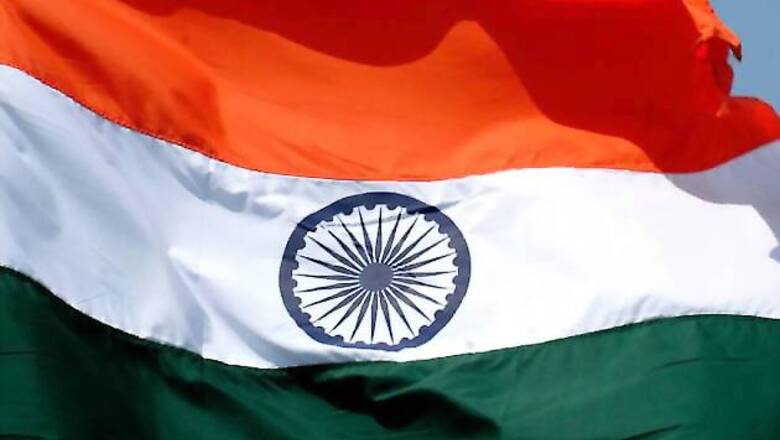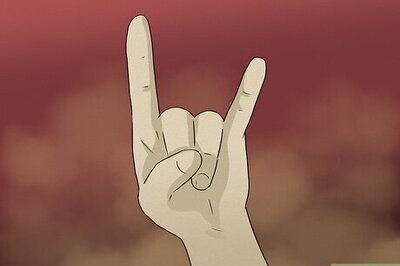
views
New Delhi: "Vande Mataram" is a poem from "Anandamath", a novel written by Bengali litterateur Bankim Chandra Chattopadhyay and published in 1882. Written in Bengali and Sanskrit, the first two verses of this poem were accorded the status of India's national song (distinct from national anthem) in 1950. The tune is set to Desh raga.
The novel was set in the backdrop of the Sannyasi Rebellion of late 18th century. The poem is a hymn to Goddess Durga, symbolising India. It played a vital role in the Indian Independence movement, first sung in a political context by Rabindranath Tagore at the 1896 session of the Indian National Congress.
Subsequently, it became the war chant for freedom fighters in various corners of the country. In 1905, when Bengal, the hotbed of nationalism, was sought to be partitioned by Lord Curzon, singing of the song and raising similar slogans were completely banned in Calcutta. The song continued to inspire militant nationalists in Bengal, Maharashtra and Punjab. It was repeatedly sung in various programmes of the Indian National Congress.
Aurobindo Ghosh translated the poem into English. The first two verses of the same is considered by many including the Government of India as the official translation of the first two verses.
It reads:
I show gratitude to thee, Mother,
richly-watered, richly-fruited,
cool with the winds of the south,
dark with the crops of the harvests,
The Mother!
Her nights rejoicing in the glory of the moonlight,
her lands clothed beautifully with her trees in flowering bloom,
sweet of laughter, sweet of speech,
The Mother, giver of boons, giver of bliss.
The song has had its fair share of controversies with sections of Muslims and Sikhs opposing it on the ground that it talks about worshipping one's mother which is prohibited by the respective religions. However, the All India Sunni Ulema Board on Sept 6, 2006, issued a fatwa that Muslims can sing the first two verses of the song. The Board president Moulana Mufti Syed Shah Badruddin Qadri Aljeelani said that "If you bow at the feet of your mother with respect, it is not shirk but only respect."
In 2002, BBC World Service conducted an international poll to choose ten most famous songs of all time. Around 7000 songs were selected from all over the world. Vande Mataram, from the movie "Anand Math", was ranked second.















Comments
0 comment